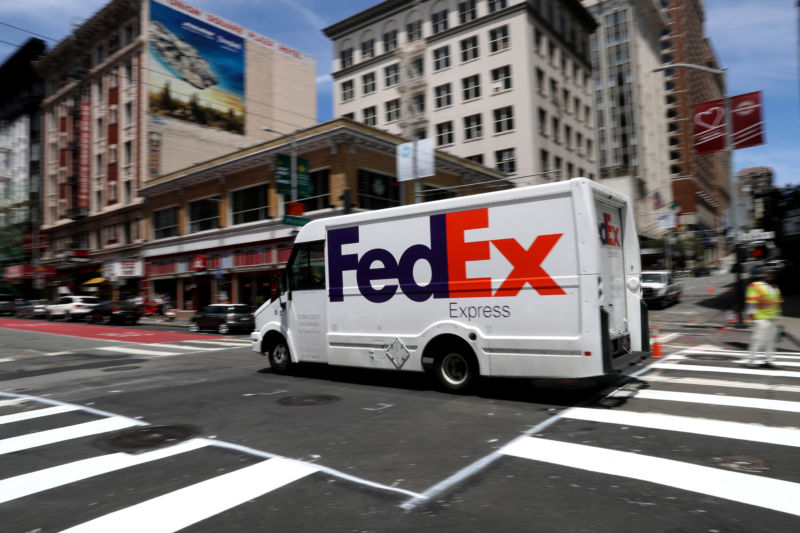
Federal Express is suing the US Department of Commerce, arguing that US export control laws are so onerous that it's impossible for FedEx to comply with them. US laws "require considerably more screening than possible from common carriers like FedEx," the company argues in a legal complaint filed in a DC federal court on Monday.
The lawsuit doesn't mention Huawei, but it was filed after a string of disputes between FedEx and Huawei that may be connected to US export control laws.
FedEx is one of the many international companies feeling pressure from the escalating trade war between the United States and China. Last month, the Trump administration added Huawei and its affiliates to an "entity list" under export control law. That made it illegal to ship a range of US-made technology to Huawei.
FedEx argues that US export control laws are impossibly burdensome for a common carrier like FedEx. Theoretically, FedEx says, the law requires FedEx to determine whether any package violates the law by shipping US technology to a proscribed entity. However, FedEx says, most of its packages are sealed before shipment. Searching them all would not only be expensive—it could also violate laws protecting the privacy of packages.
FedEx wants the courts to declare the export control law unconstitutional, at least as it applies to common carriers like FedEx.
Interestingly, Fedex rival UPS does not seem to agree with Fedex's argument.
"We have not had any particular issues with shipping for Huawei or any of our other customers, and we would not be supportive of joining such a lawsuit or making such claims," a UPS spokesman told The Wall Street Journal.
The Huawei connection is murky
Since the Trump administration added Huawei to its export control list last month, FedEx and Huawei have become embroiled in a series of disputes over mishandled shipments.
In mid-May, Huawei accused FedEx of diverting two packages shipped from Japan to the United States, instead of delivering them to Huawei offices in China. The smartphone giant said that FedEx was planning to do the same thing with two other Huawei packages, also bound for Huawei offices in China. But for reasons that aren't clear, the packages were returned to their senders in Vietnam instead.
Last week, Fedex became embroiled in controversy for sending a Huawei phone bound for the United States back to its sender in the United Kingdom. The phone was sent by a UK journalist at PC Mag to the magazine's New York office. After arriving at a FedEx facility in Indiana, the phone was flown back to Britain.
A note attached to the returned package said "parcel returned by FedEx, due US government issue with Huawei and China government."
FedEx said it didn't generate the note and that all of these incidents were isolated mistakes—not reflections of FedEx policies.
The FedEx lawsuit is being widely reported as a response to these Huawei shipping snafus, but it's not clear that they're actually connected. Huawei says that the packages diverted in May had important corporate documents, not hardware that could be subject to US export restrictions. And US export laws shouldn't restrict the ability of a British journalist to send a legally purchased Huawei phone to colleagues in the United States.
Last year, FedEx was fined for 53 violations of federal export-control regulations. Those violations involved the shipment of 52 airport parts to France in 2011 and an electron microscope to Pakistan in 2012.
What we don't know is what kind of behind-the-scenes conversations FedEx is having with the Trump administration. The US government may be pressuring FedEx to step up its screening activities against Huawei. But Monday's FedEx lawsuit doesn't say that.
https://arstechnica.com/tech-policy/2019/06/fedex-sues-us-government-over-export-controls-after-huawei-problems/
2019-06-25 22:19:00Z
52780318695974
Tidak ada komentar:
Posting Komentar